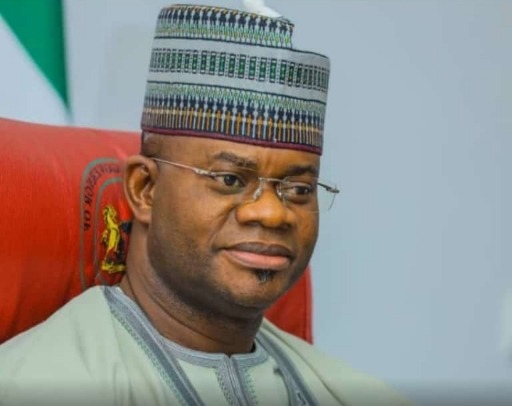This post has already been read 3025 times!
Alhaji Yahaya Bello, the immediate past Governor of Kogi State, is currently facing a 19-count charge brought against him by the Economic and Financial Crimes Commission (EFCC).
In a recent development, Bello’s legal team, led by Mr. Abdulwahab Mohammed, SAN, has submitted a letter to the Chief Judge of the Federal High Court, Justice John Tsoho. The letter requests a change in the trial venue from Abuja to Lokoja Division of the high court, citing territorial jurisdiction.
During the resumed proceedings on Thursday, Bello was conspicuously absent from the Federal High Court in Abuja, where he was expected to enter his plea to the charges. However, Mr. Adeola Adedipe, SAN, representing Bello, drew the court’s attention to the letter addressed to the Chief Judge.
The case has attracted significant attention, and legal experts are closely monitoring the developments as the court considers the jurisdictional issue. Bello’s plea to face trial in Kogi State adds a new dimension to the ongoing legal battle.
Addressing the court after the matter was called, Adedipe, SAN, said, “My lord, after the proceedings of the last adjourned date, I went back and gave a report of what happened in court to our team.
“However, I was made to understand that a letter had been written on behalf of the defendant to the honourable Chief Judge of the Federal High Court requesting in substance, that this matter be administratively transfered to the Federal High Court, Lokoja Judicial Division, which we believe have territorial jurisdiction to handle this matter.
“That letter was received at the Chief Judge’s Chambers and the office of the of honourable CJ wrote the prosecution team through Mr. Iseoluwa Rotimi Oyedepo, SAN, on June 13, notifying him that administrative steps has been activated, whereof he was directed to provide a response to the request for transfer of the matter.
“My lord, as of this morning, I am not aware whether there has been a response by the prosecution team in compliance to the directive of the CJ.
“We are also not in receipt of any decision that has been made on this request by the CJ.
“I am also aware that this administrative directive of the CJ has been formally communicated to this court.
“We have filed an affidavit wherein we attached two documents referencing the details that I have just highlighted.
“My duty is first to the court. As of the moment, I am not urging anything from the court, but just to present the facts as they were,” Adedipe, SAN, added.
On his part, the EFCC, through its counsel, Mr. Kemi Pinhero, SAN, urged the court to compel the defence lawyer to explain why the defendant was not in court, despite an undertaking he made on June 13 to ensure his presence in court for arraignment.
He prayed the court to dismiss “the story of the defence lawyer as dilatory and a further attempt to treat this court with scorn.”
The EFCC counsel argued that the letter to the CJ did not discharge the undertaking that were made by the senior lawyers representing the defendant.
Pinhero, SAN, further argued that even where a petition is forwarded against a judge to the National Judicial Council, NJC, it does not stop proceedings on cases pending before the judge.
Consequently, he applied for the court to invite the two senior lawyers representing the former governor to show cause why they should not be dealt with for contemptuous conduct.
Bello, who piloted affairs of Kogi state for eight years, is facing a charge bordering on his alleged complicity in money laundering, breach of trust and misappropriation of public funds to the tune of about N80.2billion.
EFCC alleged that the former governor, alongside his nephew Ali Bello and two others, Dauda Suleiman and Abdulsalam Hudu, were complicit in money laundering.
Though the ex-Kogi governor previously failed to appear before the court for his arraignment, however, he briefed lawyers to file an application to set aside an arrest warrant that was issued against him on April 17, as well as to challenge the jurisdiction of the court to try him.
The former governor maintained that the EFCC acted in breach of a subsisting judgement of a High Court in Kogi State when it entered the charge against him and also applied for a bench warrant to be issued for his arrest.
Even though the court, in a ruling it delivered on May 10, declined to vacate the arrest warrant, it, however, gave the defendant the opportunity to voluntarily present himself for arraignment.
ABUJA BUSINESS REPORTS NEWSPAPER & MAGAZINE







